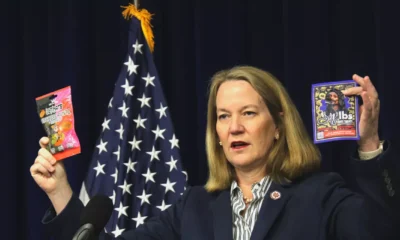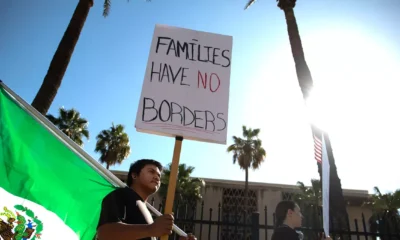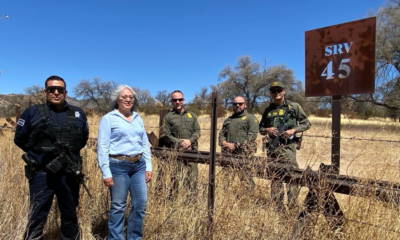arizona
Immigrant Rights Advocates Aim to Overturn Arizona’s ‘Secure Border Act’ Due to Funding Shortfalls

An immigrant rights organization has filed a lawsuit challenging the constitutionality of the Secure Border Act, a measure passed by Arizona voters last year. The law criminalizes illegal crossings along the Arizona-Mexico border and has been met with significant pushback from advocacy groups.
Living United for Change in Arizona (LUCHA) initiated the lawsuit in Maricopa County Superior Court on Wednesday. The group argues that the Secure Border Act violates funding source protections established in an earlier amendment to the Arizona Constitution. According to spokesperson Cesar Fierros, the lawsuit responds to escalating anti-immigrant sentiment fostered by Arizona’s GOP-led legislature.
“This lawsuit challenges a key component of the far-right playbook being advanced in Arizona,” Fierros stated. “LUCHA’s legal action aims to protect Arizona communities from policies that threaten our freedoms, our safety, and our democracy.”
Last year, the Secure Border Act garnered support from 63% of voters as Proposition 314. It makes crossing the interstate southern border without authorization a misdemeanor, punishable by up to six months in jail. The law also grants local law enforcement authority to arrest suspected violators, including the ability to issue deportation orders.
While a specific provision is currently on hold pending a U.S. Supreme Court ruling regarding a similar law in Texas, other enacted components impose serious penalties for using false documentation in applying for benefits or jobs. Moreover, individuals convicted of selling fentanyl resulting in death now face new felony charges.
According to LUCHA attorney Jim Barton, the Secure Border Act violates the Arizona Constitution by failing to identify a funding source for its implementation. The constitutional requirement dates back to 2004, aimed at preventing advocacy groups from mandating state funding for programs that the dominant political party opposed. This requirement, however, also applies to legislation introduced by lawmakers.
Despite warnings from law enforcement during the Secure Border Act’s legislative process concerning the need for additional resources, lawmakers neglected to allocate a funding stream. “Because Proposition 314 will cost millions of dollars and it has no funding source, it’s unconstitutional and unenforceable,” Barton emphasized.
Barton also highlighted that the impact of the law could have wide-ranging fiscal implications, even affecting basic services like library access for children due to strict eligibility verification processes. “This is a fiscally irresponsible act,” he lamented.
This legal action is not the first time LUCHA has sought to contest Proposition 314. Previously, they argued that the initiative violated the state constitution’s single-subject rule due to its broad scope. However, that challenge was dismissed by the Arizona Supreme Court, which sided with Republican lawmakers who affirmed the act’s focus on border security.
In this instance, Barton believes the case has a stronger foundation. He asserts that the Arizona Constitution’s stipulations regarding funding sources leave little room for interpretation. “The law requires funding for mandatory expenditures, and it fails to provide a source,” he concluded.
Notably, previous court decisions affirming the unity of Proposition 314’s provisions could aid LUCHA’s current challenge. Barton noted that if any part of the act is found unconstitutional, the entire measure could be invalidated.
Besides contesting the funding provisions, LUCHA is challenging the Secure Border Act on two additional legal principles: separation of powers and delegation of legislative authority. Barton contended that one aspect of the law infringes upon judicial authority by defining probable cause for migrant arrests. He further argued that the legislative body improperly deferred to Texas law when establishing conditions for the Arizona measure to take effect.


















